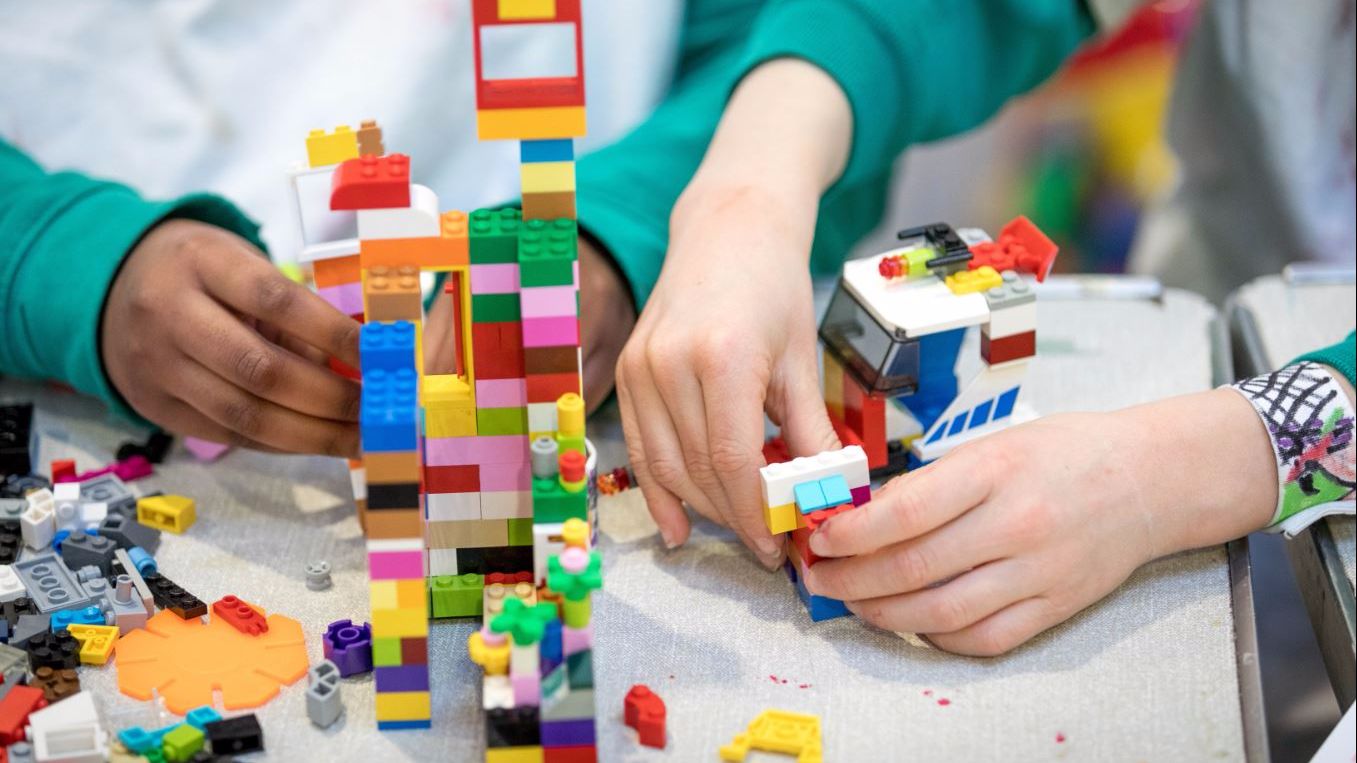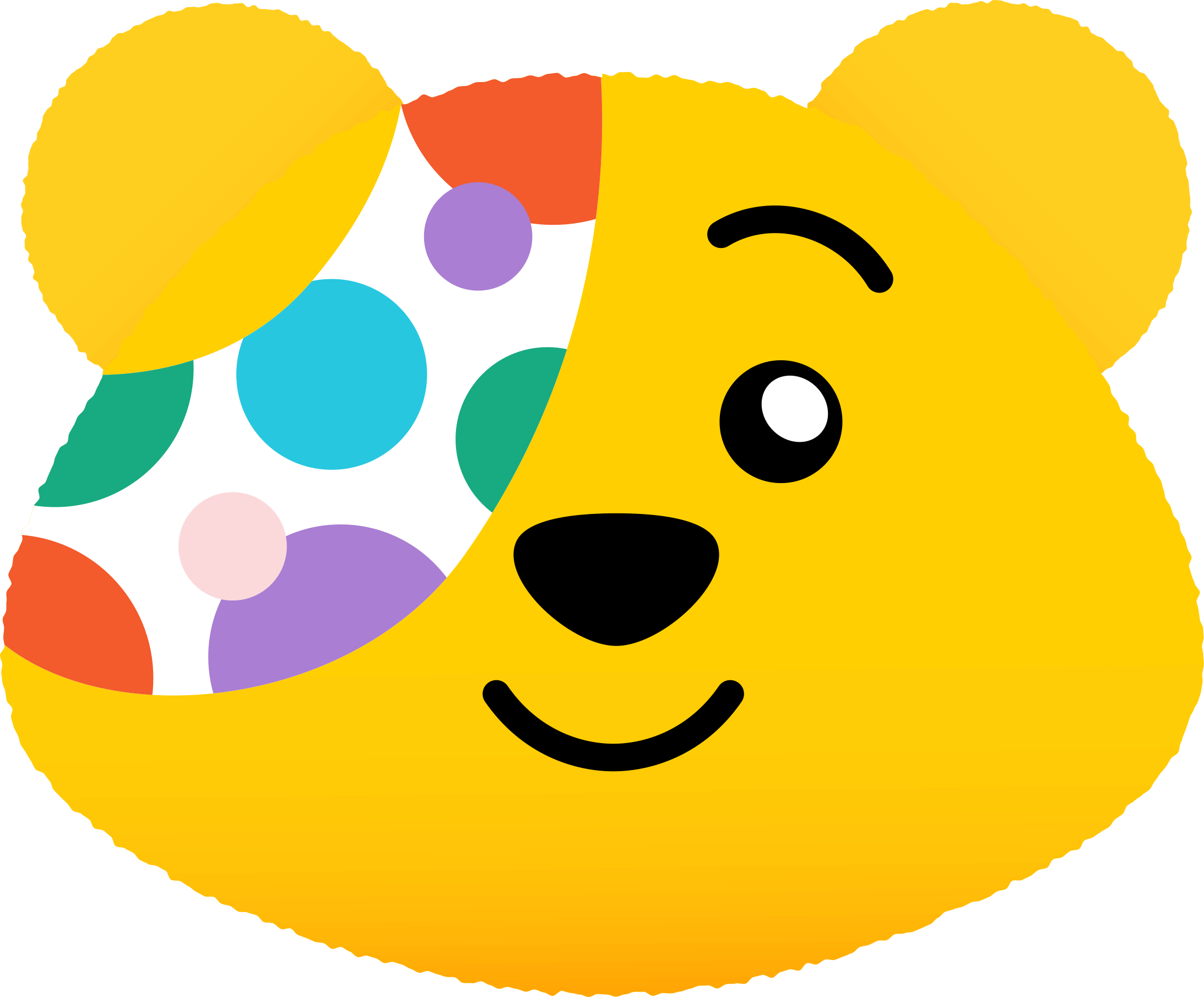
Curiosity
Curiosity, a £2.5 million partnership between BBC Children in Need and Wellcome, focusses on improving the lives of children and young people experiencing disadvantage, through participation in and out of school science activities.
Curiosity has delivered two rounds of funding. After an initial round, which funded 32 projects in late 2020, the partners committed a further £1,676,947 to 25 projects throughout the UK. These exciting projects are delivering inspiring science activities that will help children and young people develop new skills and build their confidence. Projects encourage young people to be curious about themselves and the world around them. This also changes how they interact with science.
What we’ve learned so far
Our first set of funded projects, 32 at £291,533 showed us that opportunities to engage with science can make a positive difference to the lives of children and young people experiencing disadvantage.
Key findings:
- Like sports and arts activities, informal science activities can support disadvantaged young people’s personal and social development.
- The approaches and skills needed to engage disadvantaged young people in science – such as facilitation, exploration and variety – are similar to those needed to engage them in other youth work activities.
- Most young people participating in Curiosity round 1 projects experienced positive differences which contributed to at least one of our seven building blocks including improved essential skills and self-belief.
- There is evidence that informal science activities could have a unique role to play in youth work. This is because they:
- allow young people to try things, fail and try again, which stretches them and youth workers in new ways
- provide new opportunities for youth workers to open up a dialogue with disadvantaged young people, so they can support them with other issues.
- Other positive outcomes for young people who take part in informal science learning activities include:
- improved peer relationships and the ability to value other people’s differences
- better problem-solving skills
- new career aspirations
- improved communication with parents.
Through our second round of funding, we will continue to build upon this learning and understand the impact of the Curiosity programme on children and young people further.
We are working with Substance, youth sector research specialist, and Graphic Science, leaders in informal science learning and evaluation. Together they are supporting grantees to tell the story of their projects and monitor their activities.
They will collate evidence and establish key findings through project impact reports. The impact of the first year of funding will be finalised in April 2021, with further reports to follow in the spring of 2022 and 2023, where the final evaluation of the three year programme will be completed.
Please see the Year 2 Interim Report Summary here, developed by our external evaluation partners Substance and Graphic Science. The report highlights key outcomes of STEM delivery in the youth development sector, including the positive development of children and young people’s mental wellbeing and confidence levels. Children in Need is thrilled to be a part of the ongoing research of the importance of informal science learning as a youth development tool.
Here, you can see the FINAL full report, and here an executive summary. For a snapshot of outcomes, please see a Curiosity Programme video below.
Dr Anita Krishnamurthi, Head of Education and Learning at WellcomeIn a science-dependent world, it is essential that young people see science as a vital tool they can use in their lives – and do not face barriers to engage with it. In addition to supporting disadvantaged young people, this initiative will help us to better understand the role science can play in youth programmes.
Current Grantees
Through the second round of funding, we are currently working with 24 organisations throughout the UK to deliver Curiosity projects over three years.
Simon Antrobus, Chief Executive of BBC Children in NeedWe are delighted to be awarding funding to projects through our Curiosity programme. We hope that through this latest round of funding children and young people will have more opportunities to encounter, learn and enjoy science in their everyday lives.
Abraham Moss Warriors at the Heart of the Community CIC
Abraham Moss Warriors at the Heart of the Community CIC
This project will deliver a series of hands on science sessions for 144 marginalized children aged 5-15 living in an area of high deprivation. This will instill self-belief in the young people encouraging them to reach their potential.
ACE - Action in Caerau and Ely
ACE - Action in Caerau and Ely
This project will deliver an after-school and holiday archaeological project in an area of rich heritage but high deprivation to 320 children aged 10-18 offering them a physically safe space to reach their potential and develop positive relationships.
Baytree Centre
Baytree Centre
This project will provide a science and coding club for 423 girls aged 5-18, in an area of high deprivation and low opportunity, to encourage them to reach their potential by developing key skills and improving their confidence and self-esteem.
Carers Bucks
Carers Bucks
This project will fund a weekend science club for young carers. Children and young people will improve their emotional wellbeing by reducing their levels of stress and anxiety and improving their self-belief.
The Clay Foundation
The Clay Foundation
This project will deliver a science-themed holiday playscheme for 330 children aged 5-16 within an area of high deprivation, instilling in them a sense of self-belief and motivation to achieve their goals.
Comics Youth CIC
Comics Youth CIC
This project will fund a science comic publication and learning hub for 225 children aged 8-18 in an area of high deprivation.This will strengthen the resilience and confidence of the young people, improving their wellbeing and prospects.
Family Action
Family Action
This project will deliver a holiday science club for 471 children aged 0-15 within an area of high deprivation. The young people, who experience several disadvantages due to poverty, will see improvement in their wellbeing and confidence
Getting Better Together Ltd
Getting Better Together Ltd
This project will run weekly science clubs for 600 children (aged 5-18) with behavioral difficulties in an area of poverty and deprivation. This will aim to strengthen children’s wellbeing, provide life skills, and increase positive group behaviors.
Haldane Youth Services
Haldane Youth Services
This project will support a weekly science club for 525 children aged 5-18 experiencing multiple disadvantages in a socially and economically deprived area. This will positively empower them by building upon their skills, relationships and self-belief.
Healthy n Happy
Healthy n Happy
This project will fund weekend science clubs for 240 children aged 0-18 across areas of high deprivation. This will strengthen peer relationships, develop skills, and improve their confidence; helping them reach their potential.
Kingston Carers' Network
Kingston Carers' Network
This project will deliver weekly workshops, field trips and summer clubs for 75 young carers aged 9-14. They will develop skills to increase their emotional wellbeing and resilience, alongside establishing positive relationships with peers.
Knowle West Media Centre
Knowle West Media Centre
This project will deliver a science club for young women aged 16-18 in an area of high deprivation, targeting those who are most in need. The young women will develop essential skills, build confidence and have fun with peers.
Lightyear Foundation
Lightyear Foundation
This project will deliver science-based dance workshops for 1575 children with severe disabilities and special educational needs, aged 0-18. The children will gain self-confidence, improve their physical competencies and have fun with peers.
Newbigin Community Trust
Newbigin Community Trust
This project will fund an after-school club for 50 marginalised children aged 5-15 within an area of high deprivation and gang violence. Science will be used as a tool to empower them; encouraging positive behavior and taking pride in achievements.
North East Autism Society
North East Autism Society
This project will fund a weekly after-school club for 48 children aged 10-15 who are on the autistic spectrum. This will result in their enhanced emotional wellbeing, building positive relationships and gaining a sense of empowerment.
OASIS Community Church, Centre & Gardens
OASIS Community Church, Centre & Gardens
This project will deliver science workshops for 60 children and young people aged 4-17, including disabled children, children with behavioral difficulties, and those with additional learning and emotional needs to positively empower them.
People Know How
People Know How
This project will provide two weekly community science clubs for socially and economically disadvantaged children and young people aged 10-14, aiming to improve their emotional wellbeing.
Rathfern Community Regeneration Group
Rathfern Community Regeneration Group
This project will fund a range of indoor and outdoor science-based activities for 45 children aged 8-18 with additional learning needs who are also experiencing an unsettled home life due to poverty to develop their self-belief and have fun.
Red Balloon of the Air
Red Balloon of the Air
This project will run an after-school and holiday science club for 60 children aged 10-18 who’ve been self-excluded from school due to mental trauma such as complex mental health issues, autism and severe bullying, to improve their wellbeing.
Station House Media Unit
Station House Media Unit
This project will enable 263 children and young people aged 10-18 to deliver a series of science-themed articles, radio shows and TV broadcasts. This will improve their physical and emotional wellbeing, encouraging them to reach their potential.
TDC (The Trust for Developing Communities)
TDC (The Trust for Developing Communities)
This project will deliver a science and engineering club for 310 children within an area of high deprivation. This will improve the physical and emotional wellbeing of the children, while allowing them to reach their potential.
University of Birmingham
University of Birmingham
This project will fund weekly science workshops for 120 children aged 11-16 who experience multiple disadvantages including mental health difficulties, abuse and family breakdown to strengthen their social relationships with peers and improve self-belief.
Warrington Youth Club Limited
Warrington Youth Club Limited
This project will deliver a science-themed evening club for 72 children aged 7-12 who experience disadvantages such as living in poverty, having mental ill-health or being disabled to enrich their lives and encourage positive relationships.
Yipworld
Yipworld
This project will provide a weekly drop-in science club for 210 children aged 7-11 in a rural and deprived area; improving emotional wellbeing, self-belief and helping them develop positive relationships.
Case Studies
Knowle West Media Centre, are delivering a project with young women aged 16-18 who are interested in making a positive difference in their communities, but may not have considered Science with Art as a tool to achieve this. Working with project partners Stemettes, they are supporting a group of aspiring female activists from London and Bristol to learn digital technology skills which can bring social action campaigns to life.
What’s next
We know that engaging with science in an informal setting can support the development of children and young people. For the next three years, Curiosity aims to use these initial learnings as a launching off point. This will allow us to further explore the unique role we think science can play in creating change for children and young people who experience disadvantage. We want to do that in partnership with the youth sector, with children and young people, science communicators, and science institutions across the UK.
